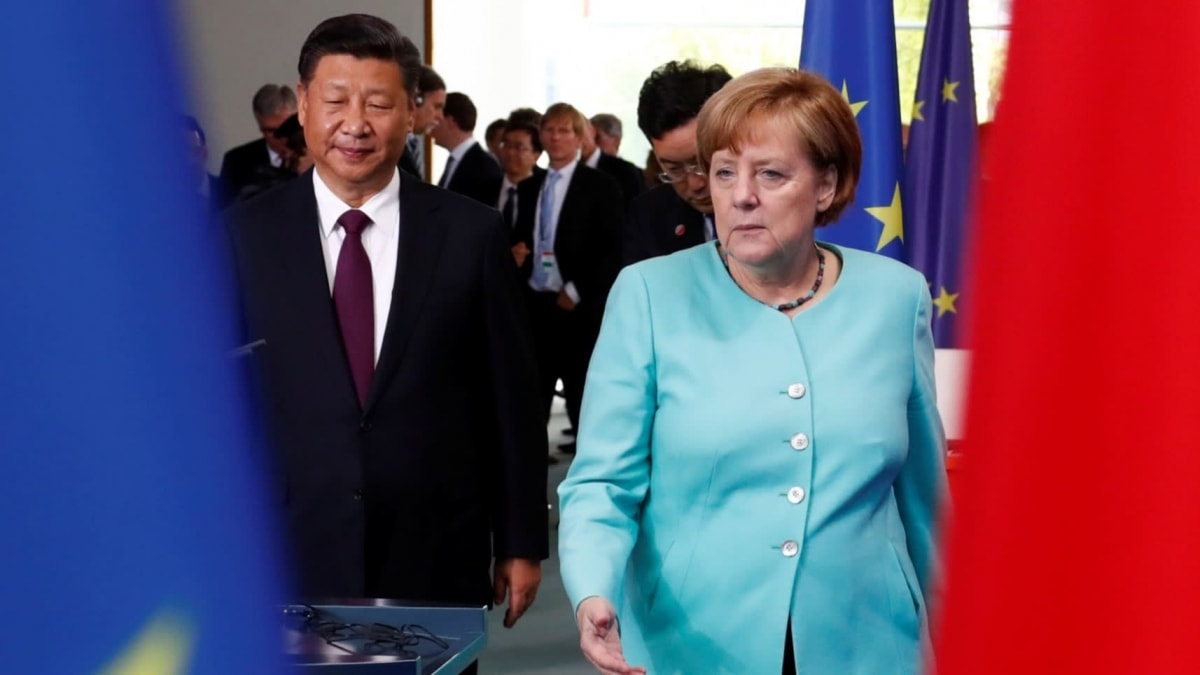'Honeymoon' with China ends, Germany shifts strategy to Indo-Pacific
Ending its “honeymoon” with China, Germany shifts its Indo-Pacific strategy, promoting an order based on international rules rather than “the law of the strong”.
After years of shaping Asia policy around China, Germany has made a surprising turn by shifting its focus to working with regional countries like Japan and South Korea to promote international rules and regulations.

The shift comes as part of Europe's growing wariness about its economic dependence onChinaas well as more assertive actions by Beijing.
"We want to contribute to shaping a future global order based on rules and international cooperation, not on the law of the strong," German Foreign Minister Heiko Maas affirmed on September 2.
Germany has thus taken new steps in its Indo-Pacific policy, emphasizing the importance of the rule of law and promoting market opening in the region. This German strategy is said to be similar to the strategies of France, Japan, Australia and ASEAN member states.
Is the Germany-China “honeymoon” period a thing of the past?
China has been the focus of Germany’s diplomatic strategy in Asia, with Chancellor Angela Merkel visiting the country almost every year. China also accounts for about 50% of Germany’s trade in the Asia-Pacific region.
However, economic growth has not gone hand in hand with opening up to the Chinese market asVirtueThe country's companies operating there are forced to transfer technology to the Chinese government. The stalled negotiations on an investment agreement between the European Union (EU) and China to address the issue have raised concerns about growing economic dependence on Beijing.
China's moves in Hong Kong and Xinjiang have also created hesitation in Germany about Chancellor Merkel's pro-China policy.
Indian Strategy -PacificBerlin has taken a tougher approach to Beijing, including criticizing the huge debts being shouldered by countries participating in Beijing's Belt and Road infrastructure initiative.
German companies have also expressed concerns about doing business and protecting their intellectual property in China, especially after China's Midea Group acquired German robot maker Kuka in late 2016.
Still, companies are reluctant to talk about abandoning a huge market like China.
Last year alone, Germany exported nearly 100 billion euros worth of goods to China, more than half the value of all EU goods exported to the country. Germany also buys more goods from China than Berlin exports to it, making Beijing its largest overall trading partner.
While the US remains Germany’s largest export market overall, exports to China are growing. Even in the midst of the pandemic, China remains an important pillar, with German exports to the country returning to pre-crisis levels while exports to the US have fallen.
Additionally, last year, about 40% of Volkswagen vehicles sold, as well as nearly 30% of Daimler and BMW products, were exported to China.
Volkswagen CEO Herbert Diess has called China the company's "most important market." The automaker also agreed in May to buy a 50 percent stake in Chinese state-owned JAC Motors. Volkswagen has tightened its ties with China after an emissions scandal in the US and setbacks in relations with India's Tata Motors.
Daimler and BMW also see China as "key to success", especially as the European market remains impacted by the Covid-19 pandemic.
BASF, a leading German chemical manufacturer, is building its second synthetic chemicals project in China. The company's second chemical plant in Guangdong province will be completed by 2030 at a total cost of up to $10 billion.
German Chancellor Angela Merkel discussed EU-China relations on September 9 ahead of high-level talks between the two sides. The German leader is expected to speak with Chinese President Xi Jinping via video link on September 14. Germany currently holds the rotating presidency of the EU, with the bloc's relations with China at the heart of Berlin's foreign policy goals.
"The EU may face a test in this global political environment. China is therefore playing an increasingly central role in our foreign policy," German Deputy Foreign Minister Niels Annen said in the Bundestag.
Germany shifts its strategy to the Indo-Pacific
However, Europe as a whole is still in the process of reassessing its relationship with China. In 2019, the EU called China a “strategic competitor” and highlighted its technological and trade rivalry with the Asian country.
The shift shows that Brussels is taking a more sober strategy towards Beijing, said analyst Patrick Koellner at the German Institute for Global and Area Studies.
Germany plans to work with France to develop an EU-wide Indo-Pacific strategy. Berlin aims to increase its influence on the issue through alliance-wide support.
Britain and France have also begun to “freeze” the participation of Chinese telecommunications giant Huawei in their 5G networks. Foreign Minister Wang Yi recently visited Europe as part of a “charm offensive” strategy, but this visit has deepened the rift between the two sides.
Janka Oertel, director of the Asia program at the European Council on Foreign Relations, told Politico that the Covid-19 pandemic and China's increasingly assertive actions have made the EU skeptical and distrustful of Beijing.
"We have seen a change in the level of trust between the EU and China, which used to be very high but is now very low"./.
